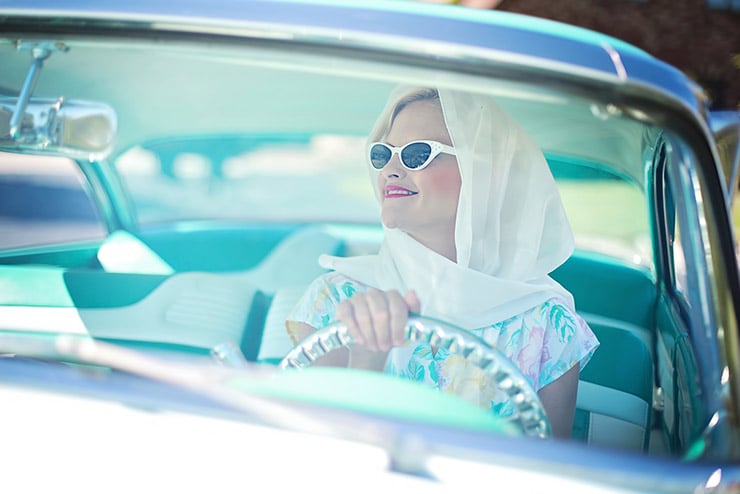Please hop into my time machine, and I’ll give you a short tour of Boonville, North Carolina in the summer of 1959, before bringing you back to the present day.
Strolling around this small hamlet of 600, note the town’s most historic building, the old brick bank founded long ago by Mr. Shore. Take in the two barber shops, Donald’s and Finney’s, the beauty parlor, Harvey Smith’s grocery store, and Grady’s Café. The movie theater is showing Rio Bravo starring John Wayne, the Methodist and Baptist churches stand waiting for congregants, and the Boonville school with its attendant baseball diamond is often filled with the voices of noisy children.
Most everyone in town knows one another, and so we observe shoppers and pedestrians stopping to chat together on the sidewalks. Nearly all of the women and teenage girls wear dresses, though we note the car dealer’s wife is decked out in capri pants. Many of the men are wearing hats and sporting fashionable crew-cuts. Though it’s a workday, the pace of the town is leisurely and tranquil.
Of course, there are troubles and injustices here. Like the rest of the South, Boonville practices racial segregation. The United States and Russia are waging the Cold War, and Fidel Castro is now firmly in command of Cuba. Locally, the year also brings a suicide or two, several unwanted pregnancies, and the usual deaths caused by disease, old age, and accident.
If we pause to compare the town and its people to our own time, we begin to notice differences. No one here in 1959 Boonville casually tosses around the F-bomb or other foul language, at least not in public. The only person in this community with a visible tattoo is Tony, who served a four-year stint in the Navy. Some lovely women stroll past us, but none of them are dressed provocatively. With the exception of a tiny Sears store, all of the businesses are locally owned and operated.
If we asked some passersby to name their favorite television shows, they might offer Gunsmoke, Father Knows Best, or Perry Mason. If we inquired what they do for entertainment at night, they mention going to the movies, church suppers, and sharing homemade ice cream with neighbors in the backyard.
Ask them some questions about sexuality, and you might as well be speaking a foreign language. “Is anyone here gay?” might bring a smile and the answer, “Well, sometimes you can hear the women in the ladies bridge club laughing all the way down the block.” Mention transgenderism, and you’d either get a quizzical look or maybe some advice on automobile repair. Sex education in the schools is nonexistent, though somehow young people keep getting married and having babies.
Political questions might also bring you a funny look or an answer unfamiliar to us today. Those two women visiting in the grocery store, one of them your host’s mother, would likely smile if asked their party affiliation. “I’m a Republican,” the first says. “And I’m a Democrat,” says the other, “and every election we go to the polls and cancel each other’s vote out.” Ask a man nicknamed “Nut” about critical race theory, and he would likely launch into a discourse on stock car racing. Ask anyone, Republican or Democrat, what he thought about a national debt in the trillions of dollars, and he might respond, “How much is a trillion?” Ask what is best about being an American, and the likely answer would be, “We’re free.”
The film Blast From the Past gives us a similar perspective on the differences between now and then. Mistakenly believing that a nuclear war has taken place, a family lives in a fallout shelter for more than 20 years. When they run short of supplies, Mom and Dad send their son Adam up to the surface where he finds himself in a neighborhood of drug users, derelicts, graffiti, and trash. As Adam meets others from the world of the future, the contrast between the innocence of his age and the vulgarity of our postmodern culture becomes more pronounced with every scene.
An ocean of differences stands between that time and our own. We are a sex-saturated, politically divided, and much cruder society than the town of Boonville in 1959. Pornography wasn’t a major industry, Americans were civil in their political differences, and the ugly culture that is now a part of our daily lives was largely absent then.
But here’s the crucial difference: We as a people have surrendered old-fashioned decency and core values in favor of vice, muddle, and mess.
And yet…and yet…hope remains.
All around me I see Americans trying to live virtuously, young parents striving to raise their children free of the muck and mud of modernity, men and women ranging from physicians to auto mechanics trying to do an honest day’s work and giving encouragement to others as lagniappe, and young people who value liberty and who reject the totems of the prevailing moral climate.
They are everywhere, candles in the darkness, keeping alive the good, the true, and the beautiful.
We must hope they prevail.
Image Credit:
Pixabay

Leave a Reply